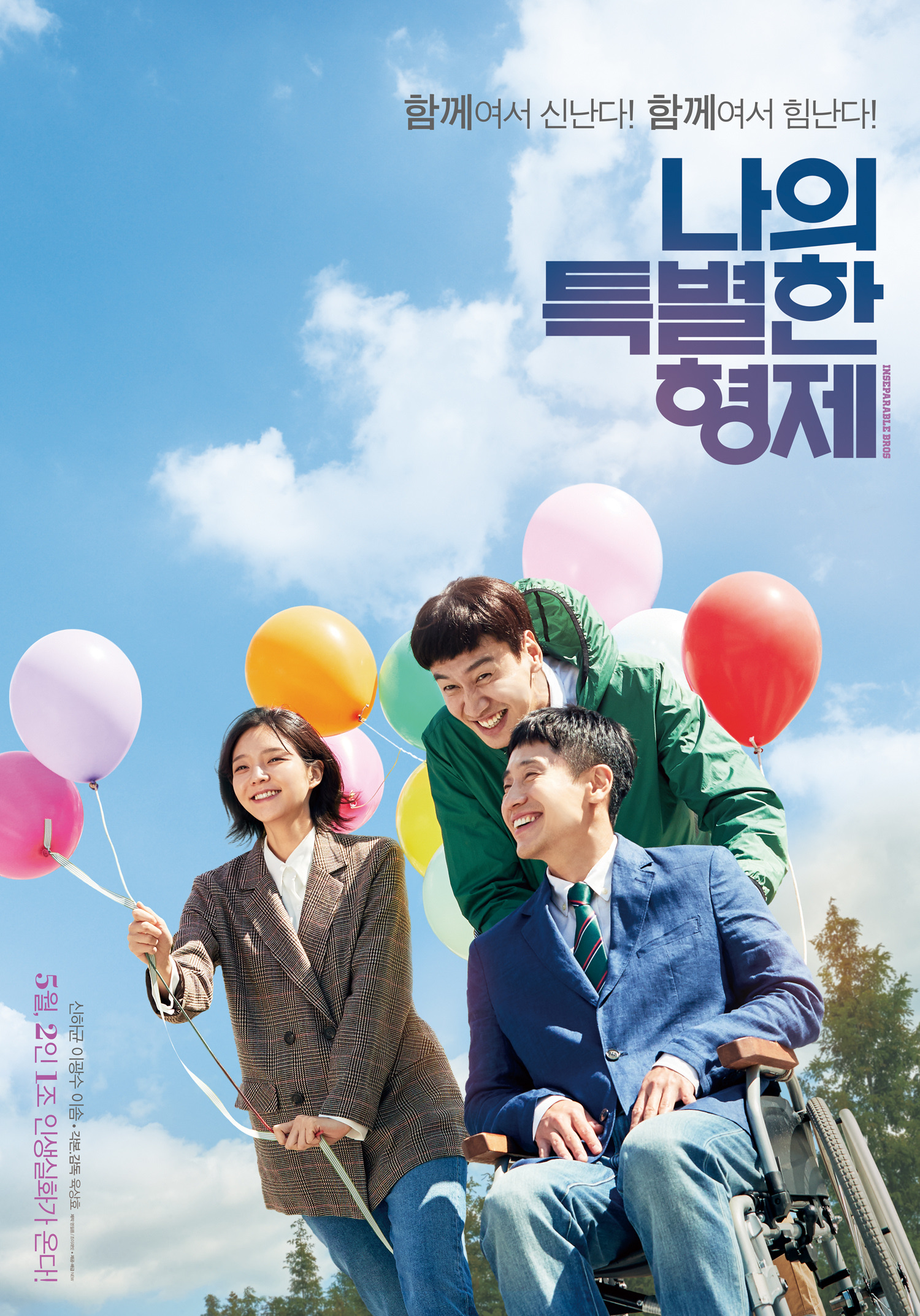Amidst a craze for Avengers: Endgame, a (supposedly) heartwarming Korean film, Inseparable Bros, was released on May 1. Spoiler alert: this article contains the general plot of the film. Se-ha (Shin Ha-kyun), who is paralyzed from neck-down but is exceptionally clever, and Dong-goo (Lee Kwang-su), a talented swimmer who has a mental age of a five-year-old, grow up together for 20 years and become a perfectly co-dependent pair. In the film, Se-ha gets Dong-goo to participate in a swimming competition, but Dong-goo is unable to finish his first race due to a trauma from having been abandoned by his mother at a pool. Having seen his interview on TV, Dong-goo’s birth mother appears and takes him back home. This separates the two for a while, but Dong-goo ultimately chooses Se-ha after overcoming his trauma.

As touching as this “based-on-true-story” material seems, the general flow of the plot and the message of the film were already obvious from the uncreative title and the trailer. In other words, the film is littered with clichés of a typical Korean melodrama. There are going to be cute and funny parts to begin with. Troubles will come, but only to prove how much the boys need each other. Some unnecessarily dramatic scenes here and there, meshed with some inspirational quotes, would together build up into adequately tear-jerking moments. Finally, we are to learn the true meaning of what it is to be a “family”. I went into the cinema, hoping the film may shatter this prediction based on stereotypes.
First of all, all characters were fairly plain and one-dimensional. Dong-goo is either innocent and adorable, or confused and scared throughout. His personality seems to be characterized only by his disability. Se-ha is a typical “tsundere”: a Japanese term for someone who is always a little angry on the outside but actually warm in the inside. This could be considered as having layers in personality, but the existence of this term alone shows how overused it is as a character development tool. Supporting characters Mi-hyun (Esom) and Ju-sa (Park Cheol-min) are always incomprehensibly supportive and kind. Dong-goo’s mother only ever cries and pleads in almost all scenes she appears in. With no depth to their personalities, it was not only difficult to emotionally connect with the characters, but it also made them very predictable, which made the movie terribly boring.
On top of this, the plot was also very weak. It felt as though there were missing scenes, and the audience had to accept some of the plot elements simply as a given. For example, after a few scenes of Mi-hyun teaching Dong-goo swimming, she and the brothers suddenly show an almost family-like relationship. She not only hangs out with them all the time, but always goes out of her way to help them with anything, as if she has nothing else going on in her life. Considering that she lives on canned food and is initially seen running around looking for part-time jobs, the sudden leap in friendship and the amount of benevolence cannot be explained by anything else but a divinely kind heart. These disconnected plot elements made it even harder to follow the characters’ thoughts and emotions. Resultantly, I couldn’t help but feel that the relationship was forced and was incorporated only to provide a driving force towards resolution.
Even if the characters and plot were well-built, the film would have been a disappointment nonetheless. The climax was when Dong-goo stops in the middle of his second race like he did in his first, but this time decides to swim on, having overcome his trauma. The blurry, first-person perspective camera work with muffled shouts in the background as Se-ha is pushed into the pool bleeding from his temple, followed by a blast of dramatic music in sync with Dong-goo diving into the water once again was supposedly “the” tear-jerking moment. Indeed, I cried out of despair and disappointment of the current Korean cinema and the hopelessness of its future, seeing that such techniques were still so popular. I cried for a second time at the ultimate cringeworthy scene where they zoomed into every character one by one (in slow motion, obviously) beaming in teary eyes.
In short, there was nothing unpredictable about the whole movie. It was clichéd, weak, and bland. If you are contemplating on watching this after having watched Avengers: Endgame, I recommend you just watch that twice.

